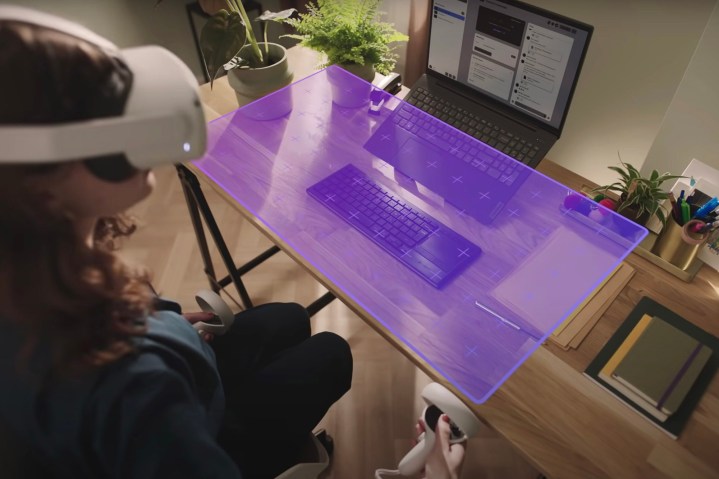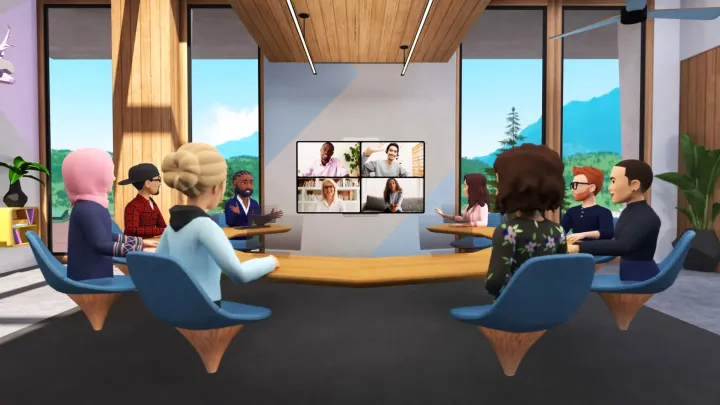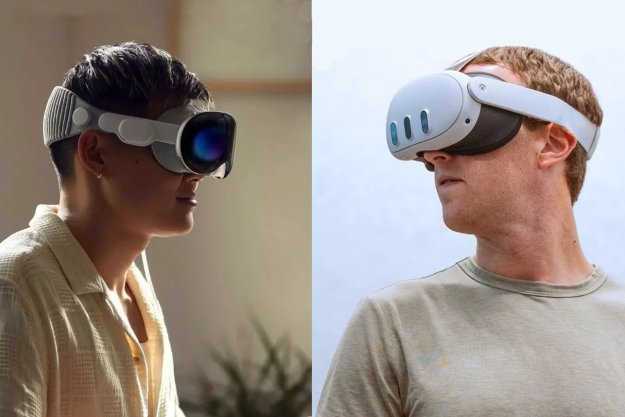Despite Mark Zuckerberg’s utopian vision for an immersive metaverse where you live and work, the latter is probably not happening anytime soon — at least, according to a new study from investigators in Germany.
First reported by PC Gamer, researchers based out of Coburg University conducted an experiment in which 16 people worked completely in VR for a week. The participants used Meta Quest 2 VR headsets combined with a Logitech K830 keyboard and Chrome Remote Desktop. This was done to make it a more realistic scenario of what people can afford today.

The results were published in a paper entitled “Quantifying the Effects of Working in VR for One Week” and probably weren’t what Zuckerberg was hoping for.
The study found that working completely in VR lowered the participant’s productivity by 14% and increased frustration by over 40%. There was also increased stress, anxiety, and an overall reduction in mental health.
It wasn’t just mental health that suffered. Participants also reported increased eye strain, fatigue, nausea, and migraines. This was likely due to having to wear the headset for so long. In fact, some people had to quit the study because of the mental and physical strain.
The results of the study certainly aren’t great for those who envision a totally virtual working environment. However, studies like these could be used to improve future VR headsets to account for the long periods of time spent in VR. In fact, the paper states that participants were able to gradually overcome the negative side effects and initial discomfort.
The paper also admitted that there are “limited studies of long-term effects” of working in VR. This study specifically studies those effects and hopes to lay the groundwork for future studies.

Meta, the company that completely rebranded itself to pursue a mixed reality metaverse, isn’t shy about its long-term goals. The company is trying to position its next VR headset to eventually replace your laptop.
Microsoft, however, has recently warned about working in the metaverse. Specifically, security and identity will be huge avenues for malicious activities. Solutions like multi-factor authentication and ditching the password will be key to working in the
Regardless, it looks like we’ll need to wait a little longer before we’re all working with avatars of ourselves.
Editors' Recommendations
- Meta has a bold new strategy for VR
- Meta Quest 4: Here’s what we want from the next big VR headset
- We have some bad news for Quest owners
- A cheaper version of the Meta Quest 3 now seems more likely than ever
- I’m a VR enthusiast. Here’s why the Vision Pro doesn’t excite me




